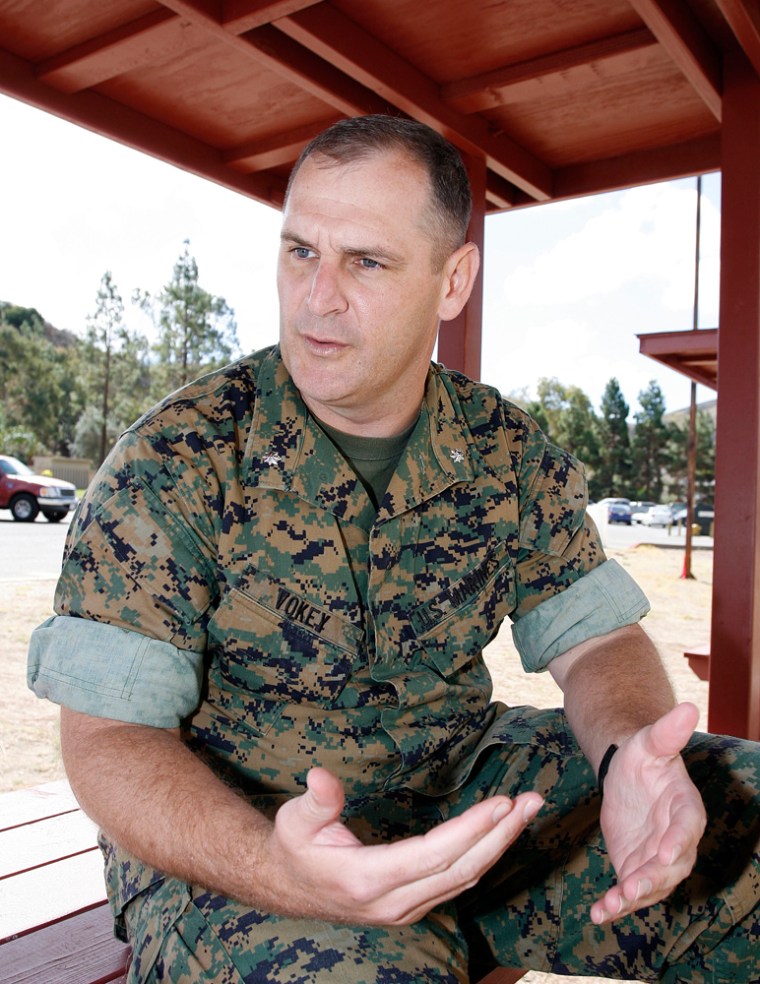Guards at Guantanamo Bay bragged about beating detainees and described it as common practice, a Marine sergeant said in a sworn statement obtained by The Associated Press.
The two-page statement was sent Wednesday to the Inspector General at the Department of Defense by a high-ranking Marine Corps defense lawyer.
The lawyer sent the statement on behalf of a paralegal who said men she met on Sept. 23 at a bar on the base identified themselves to her as guards. The woman, whose name was blacked out, said she spent about an hour talking with them. No one was in uniform, she said.
A 19-year-old sailor referred to only as Bo “told the other guards and me about him beating different detainees being held in the prison,” the statement said.
“One such story Bo told involved him taking a detainee by the head and hitting the detainee’s head into the cell door. Bo said that his actions were known by others,” but that he was never punished, the statement said. The paralegal was identified in the affidavit as a sergeant working on an unidentified Guantanamo-related case.
The statement was provided to the AP on Thursday night by Lt. Col. Colby Vokey. He is the Marine Corps’ defense coordinator for the western United States and based at Camp Pendleton.
Vokey called for an investigation, saying the abuse alleged in the affidavit “is offensive and violates United States and international law.”
Pentagon to investigate
A Guantanamo Bay spokesman said the base would cooperate with any Pentagon investigation.
A call to the inspector general's office was not immediately returned, but a Pentagon spokesman said there would be an investigation.
"We are reviewing this affidavit and will investigate these allegations fully," Pentagon spokesman Lt. Cmdr. Chito Peppler said.
Other guards “also told their own stories of abuse towards the detainees” that included hitting them, denying them water and “removing privileges for no reason.”
“About 5 others in the group admitted hitting detainees” and that included “punching in the face,” the affidavit said.
“From the whole conversation, I understood that striking detainees was a common practice,” the sergeant wrote. “Everyone in the group laughed at the others stories of beating detainees.”
Navy Cmdr. Robert Durand, spokesman for the Joint Task Force that oversees detention facilities at Guantanamo, condemned abuse or harassment of detainees and said he would cooperate fully with the inspector general.
“The mission of the Joint Task Force is the safe and humane care and custody of detained enemy combatants,” he said.
Guantanamo was internationally condemned shortly after it opened more than four years ago when pictures captured prisoners kneeling, shackled and being herded into wire cages. That was followed by reports of prisoner abuse, heavy-handed interrogations, hunger strikes and suicides.
2005 incident
Military investigators said in July 2005 they confirmed abusive and degrading treatment of a suspected terrorist at Guantanamo Bay that included forcing him to wear a bra, dance with another man and behave like a dog.
However, the chief investigator, Air Force Lt. Gen. Randall M. Schmidt, said “no torture occurred” during the interrogation of Mohamed al-Qahtani, a Saudi who was captured in December 2001 along the Afghanistan-Pakistan border.
Last month, U.N. human rights investigators criticized the United States for failing to take steps to close Guantanamo Bay, home to 450 detainees, including 14 terrorist suspects who had been kept in secret CIA prisons around the world.
Described as the most dangerous of America’s “war on terror” prisoners, fewer than a dozen inmates have been charged with crimes.
